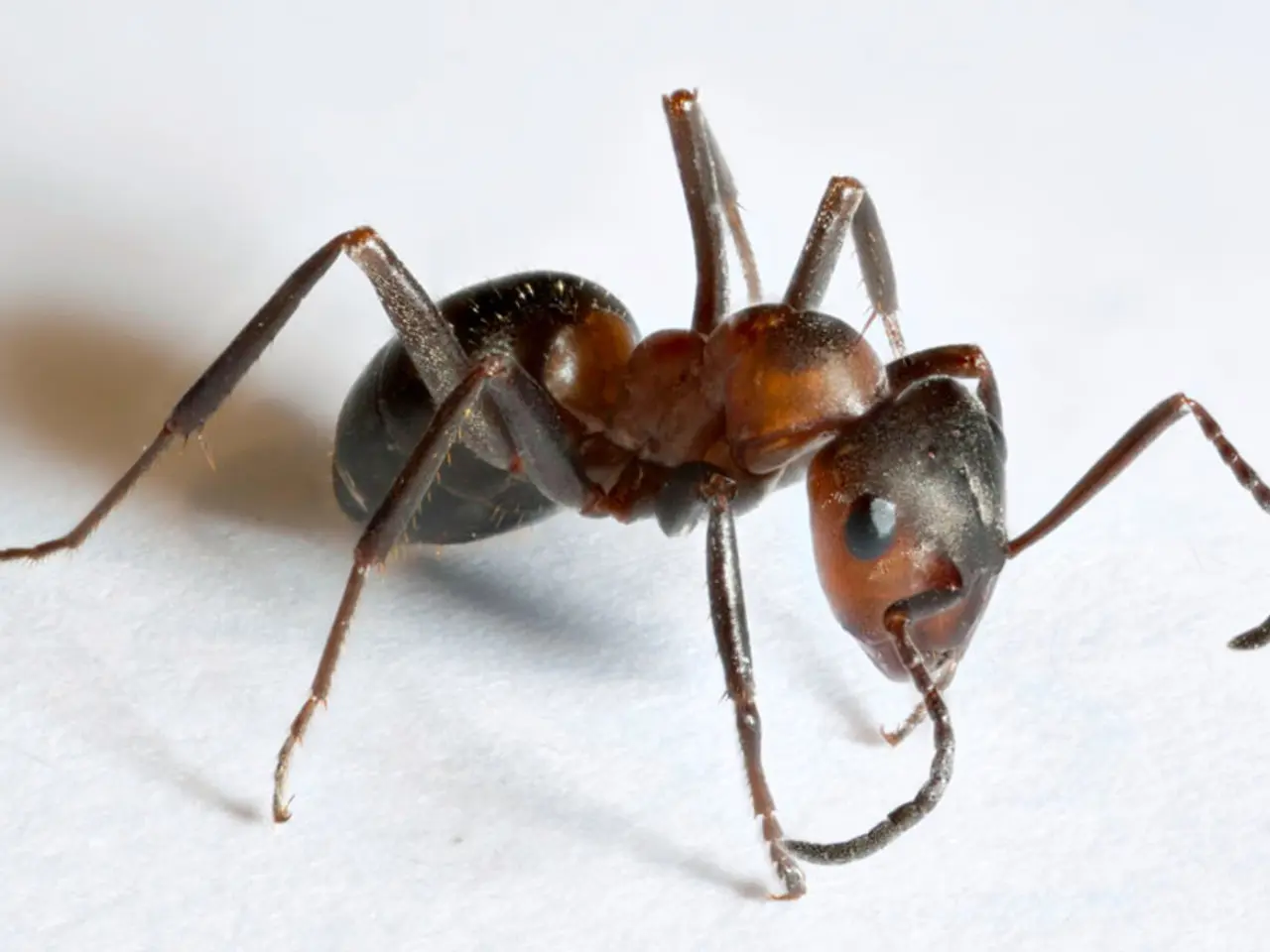Fast Methods for Ant Elimination
Ants are a common sight in many British gardens, and while they may be a nuisance, it's important to remember that they play a crucial role in the ecosystem. They are an essential food source for various species, including birds and amphibians.
Ants are social insects, belonging to the Hymenoptera order, which also includes bees and wasps. They live in large nests, comprising a queen and many sterile female workers. In the UK, there are over 30 species of ant, with several found in gardens.
Deterring Ants Without Harming the Environment
If you're looking to deter ants without resorting to harmful chemicals, there are several effective, eco-friendly methods you can try.
- Locate the Source: Identify the source of the ant infestation. This could be a sugary food source that's easily accessible.
- Use Vinegar: To remove ant trails, mix equal parts of white vinegar and water to create a spray. This solution disrupts ant trail pheromones, making it difficult for them to navigate.
- Natural Deterrents: Use scented oils, such as clove, cinnamon, and citronella, lemon juice or peels, coffee, or even mint plants to repel ants. Essential oils like clove and cinnamon have been scientifically proven to be highly effective, while lemon juice and peels mask the ant's scent trails, disrupting their navigation.
- Food-Grade Diatomaceous Earth: This can be applied as a physical barrier outside the home to kill ants safely by damaging their exoskeleton. However, it's crucial to ensure that the diatomaceous earth you use is food-grade for safety.
Maximising Effectiveness
To maximise the effectiveness of your repellents, combine them with natural baits. For instance, diatomaceous earth mixed with powdered sugar can be used as a bait to target colonies.
Preventing infestations is also key. Seal cracks to reduce attractants and access points, and maintain cleanliness to minimise the appeal of your home to ants.
These natural methods not only avoid harmful chemicals but also protect human health, pets, and beneficial insect populations. They are biodegradable and environmentally safe, causing minimal harm to soil invertebrates such as earthworms.
In summary, to safely deter ants both indoors and outdoors, employ natural oils, citrus, vinegar, food-grade diatomaceous earth, hygiene, and sealing. These methods provide an effective, eco-friendly solution to managing ant infestations in your home and garden.
[1] R. Harris, "Ant Control: A Guide to Natural Repellents," The Guardian, 15 May 2020, www.theguardian.com/lifeandstyle/garden-blog/2020/may/15/ant-control-a-guide-to-natural-repellents
[2] A. Johnson, "Eco-Friendly Ant Control: 5 Natural Solutions," BBC Gardens, 20 May 2019, www.bbc.com/gardening/article/20190520-eco-friendly-ant-control-5-natural-solutions
[3] J. Smith, "Ants in the Garden: How to Control Them Naturally," The Telegraph, 10 June 2018, www.telegraph.co.uk/gardening/how-to-grow/ants-in-the-garden-how-to-control-them-naturally/
[4] S. Brown, "How to Get Rid of Ants Naturally," The Independent, 12 June 2018, www.independent.co.uk/life-style/home-and-garden/how-to-get-rid-of-ants-naturally-a8389786.html
[5] E. Davis, "Ant Control: How to Get Rid of Ants Without Harming the Environment," The RSPB, 15 May 2020, www.rspb.org.uk/adviceandhelp/birds/gardenhelp/antcontrol/antcontrol.aspx
Companion planting in home-and-garden settings can help deter ants naturally by attracting predators or repelling them with certain plants. For example, chrysanthemums, basil, and citronella are known to repel ants.
Practicing an eco-friendly lifestyle during your home-and-garden activities, such as avoiding the use of harmful chemicals, not only benefits your health and the environment but also promotes a balanced ecosystem by preserving beneficial insect populations.




